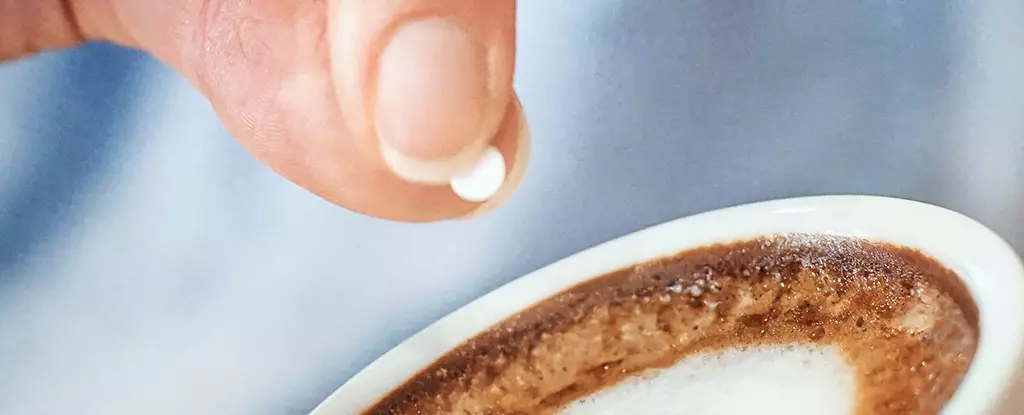In an era where antibiotic resistance is becoming one of the most formidable threats to global health, innovation is desperately needed. The recent research emerging from Brunel University challenges traditional views of artificial sweeteners, specifically saccharin, transforming it into an unexpected ally in our fight against drug-resistant bacteria. This study opens a new dialogue about how we might utilize existing, widely-available substances in ways we never thought possible. Yet, even while this revelation shines a glimmer of hope, it raises critical questions about the health implications of introducing saccharin into our battle against superbugs.
Saccharin: A Hidden Antimicrobial Hero
Claiming that saccharin can disrupt the cell walls of pathogenic bacteria sounds almost too good to be true. According to microbiologist Ronan McCarthy, the substance is not merely a sweetener; it acts as an “antimicrobial superhero.” The early lab results reveal that saccharin shows potential to interact with several clinical strains, including notorious drug-resistant foes like Staphylococcus aureus and Escherichia coli. However, while McCarthy’s findings are exhilarating, they beg the question: Is saccharin truly the miracle solution we need, or are we placing undue faith in a chemical commonly found in our diet sodas?
Moreover, can we ignore the long-term health repercussions of consuming artificial sweeteners like saccharin? Many health experts caution about their metabolic effects, including links to weight gain and increased cravings for sugary foods. It’s essential to approach the dual nature of saccharin with a critical mindset. It’s one thing to champion a possible antimicrobial agent, but it’s another to disregard the potential hazards of its chronic consumption. Could our desire to utilize saccharin as a weapon against antibiotic resistance blind us to other detrimental health consequences?
The Urgent Call for Innovative Solutions
The rising tide of antibiotic resistance is relentless, claiming millions of lives annually and making common medical procedures riskier than ever. In the face of this urgent threat, repurposing existing compounds like saccharin offers a much-needed lifebuoy for medical science. Many in the healthcare sector appreciate McCarthy’s enthusiasm for finding new therapeutic avenues. The thought of using saccharin to enhance the efficacy of existing antibiotics, without the lengthy and costly process of developing new ones, is revolutionary.
Yet, we must remain cautiously optimistic, as the path from laboratory experiments to clinical application is fraught with hurdles. While saccharin appears promising in a controlled environment, translating these results into real-world treatments will require robust clinical trials. Furthermore, complicating matters is the fact that individual responses to artificial substances vary greatly. Each person’s unique biological makeup could influence how saccharin affects both their gut health and its anticipated antimicrobial properties.
Balancing Hope and Skepticism
One cannot help but feel a paradoxical sense of hope mixed with skepticism regarding this new take on saccharin. As we explore innovative solutions for combating antibiotic resistance, we also must prioritize a well-rounded conversation about health implications. It is indeed thrilling to consider saccharin’s potential as a therapeutic agent, but we must ask ourselves how we can ensure the safety of a compound that has a complicated history in human health discourse.
As we navigate this new frontier of combining artificial substances with healthcare solutions, society must maintain a critical lens. Burnout from chronic disease and the peril of mental health crises shouldn’t be compounded by the long-term implications of artificial ingredients in our diets.
In this race against time to outsmart resistant pathogens, our pursuit of solutions must not overshadow the need for holistic health considerations. People are looking for answers, and while the study from Brunel University could be the start of something significant, we must be prepared for the complexities that lie ahead. Saccharin is merely one piece of a convoluted puzzle, and only time will tell if it will emerge as the hero we hope to find in our ongoing battle against antibiotic resistance.


Leave a Reply